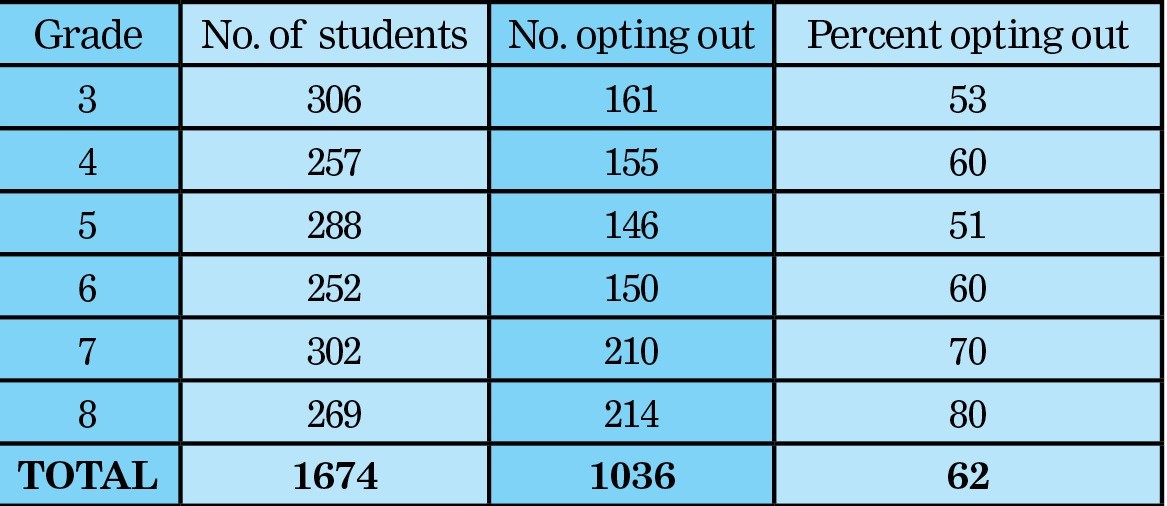RVC students ‘opt out’ in record numbers
62 percent of those eligible refuse state exams
More than 1,000 Rockville Centre students — 62 percent of third- through eighth-graders — refused to take the state English Language Arts assessments last week, far surpassing the number of “opt-outs” the district had last year.
Of the 1,674 students eligible to take the ELA test, 1,036 opted out. The numbers increased in the higher grades, with 80 percent of eighth-graders refusing the test. Last year, 774 students — 47 percent of students in those six grades — didn’t take the exams.
The high number of refusals mirrored a trend across Long Island, where record numbers of students sat out the tests, which are based on the hotly debated — and widely criticized — Common Core State Standards. “I think it’s a statement by parents that they’re not going to be pushed around by the state,” said Superintendent Dr. William Johnson.
Students who opted out were directed to separate classrooms so that those who were taking the tests could do so without distraction. “Some principals put together packets for kids to work on, so they could read and do other activities,” Johnson said. “The focus was on reading. They were engaged in meaningful activities.”
Shelagh McGinn, principal of South Side Middle School, which had the highest number of students opting out, explained that those who didn’t take the test were allowed to read, draw, do puzzles or work on exercises teachers put together. There were no electronics allowed in the opt-out rooms, and the students weren’t doing anything that would give them an edge over those who were taking the test: There were no lessons, and they weren’t doing homework.
“The bottom line is that we’re respectful of everyone’s wishes and giving them the optimum environment for whatever they’re doing, testing or non-testing,” McGinn said.
Johnson said that the data from the state tests is not used by the district. Instead, it uses the Northwest Evaluation Association exam to evaluate students’ abilities. “The state last year passed a law that said we’re not to use the state data for decisions for kids involving placement or promotion,” he said. “So we don’t. I just don’t think the data is reflective of what the school district either does or does not do.”

 47.0°,
Mostly Cloudy
47.0°,
Mostly Cloudy 




